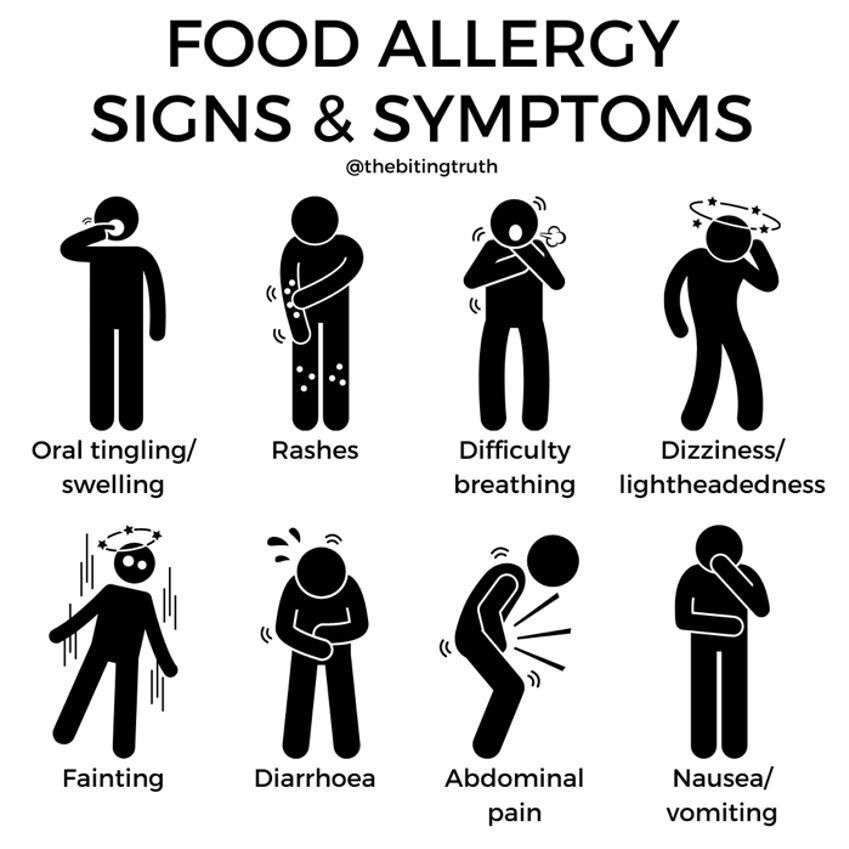Understanding Allergies and Intolerances
Key Differences, Diagnoses, and Management

Allergies and intolerances are common reactions to certain foods or substances, yet they involve different mechanisms within the body and result in distinct symptoms. Understanding these differences is crucial for appropriate diagnosis and management.
Allergies: Immune System Reactions
An allergy is an immune system response to a specific substance, known as an allergen, which the body mistakenly identifies as harmful. This response can be immediate and severe. When exposed to an allergen, the immune system releases chemicals like histamine, causing symptoms that range from mild itching and swelling to severe anaphylaxis, a life-threatening condition.
Common Food Allergies:
- Peanuts
- Tree nuts
- Shellfish
- Eggs
- Milk
- Wheat
Diagnostic Methods for Allergies:
- Skin Prick Tests: Small amounts of potential allergens are introduced into the skin to observe reactions.
- Blood Tests: Measures levels of specific IgE antibodies that the immune system produces in response to allergens.
- Food Challenges: Controlled exposure to potential allergens under medical supervision.
Intolerances: Digestive System Issues
Food intolerance, on the other hand, does not involve the immune system. Instead, it occurs when the body has difficulty digesting certain substances in food, leading to less severe reactions compared to allergies. Symptoms of intolerance can include bloating, gas, diarrhea, or stomach cramps.
Common Food Intolerances:
- Lactose Intolerance: Inability to digest lactose, a sugar found in milk.
- Gluten Intolerance: Includes celiac disease and non-celiac gluten sensitivity.
Diagnostic Methods for Intolerances:
- Symptom and Dietary History: Detailed documentation of symptoms and food intake.
- Elimination Diets: Systematically removing and reintroducing certain foods to identify triggers.
- Specific Tests: Such as hydrogen breath tests for lactose intolerance or blood tests for celiac disease.
The Role of Blood Tests
Blood tests are valuable tools for diagnosing both allergies and intolerances, providing crucial insights into how the body reacts to specific substances.
Allergy Blood Tests:
- Specific IgE Blood Test (RAST Test): Measures levels of specific IgE antibodies to determine the likelihood of an allergy.
- Component Testing: Identifies which proteins in an allergen trigger the reaction, offering more precise information.
- Total IgE Test: Assesses overall levels of IgE antibodies to gauge general allergic sensitivities.
Intolerance Blood Tests:
- Celiac Disease Blood Tests: Detect specific antibodies like anti-tissue transglutaminase (tTG) and anti-endomysial antibodies (EMA) to diagnose celiac disease.
- Lactose Intolerance Tests: Though often diagnosed through symptoms, hydrogen breath tests and lactose tolerance tests can confirm the condition by measuring lactose processing.
Comprehensive Diagnosis and Management
Blood tests are just one component of the diagnostic process for allergies and intolerances. They are typically used alongside other diagnostic tools, such as skin prick tests, elimination diets, and thorough medical history assessments, to provide a comprehensive evaluation.
If you suspect you have an allergy or intolerance, consulting with a healthcare provider or allergist is essential. They can help interpret test results accurately and recommend appropriate steps for managing your condition.
In summary, while allergies involve an immune system response and can lead to severe reactions, intolerances generally cause milder digestive issues. Proper diagnosis and management are key to maintaining health and well-being, underscoring the importance of professional medical guidance.
Did you find our post useful? Follow us on Facebook and Instagram for more handy tips on medical testing and health conditions.
Our recent posts











